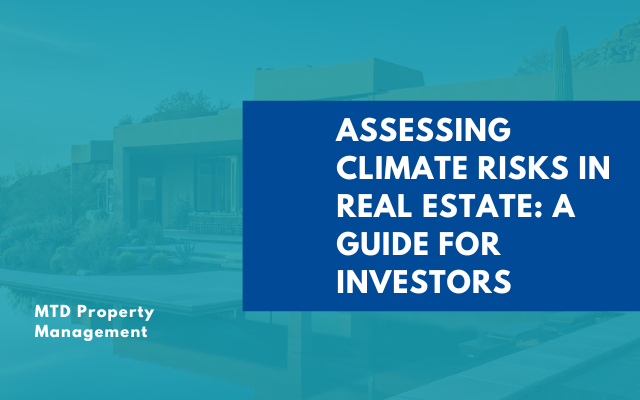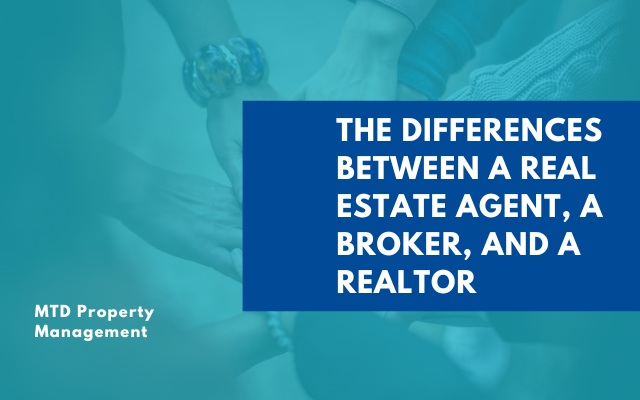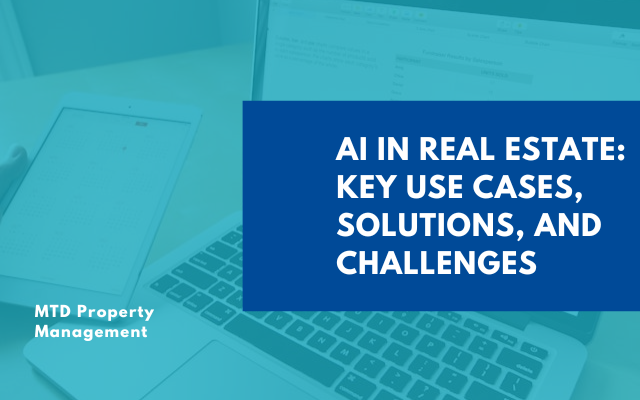How to Transition from Accidental Landlord to Active Investor
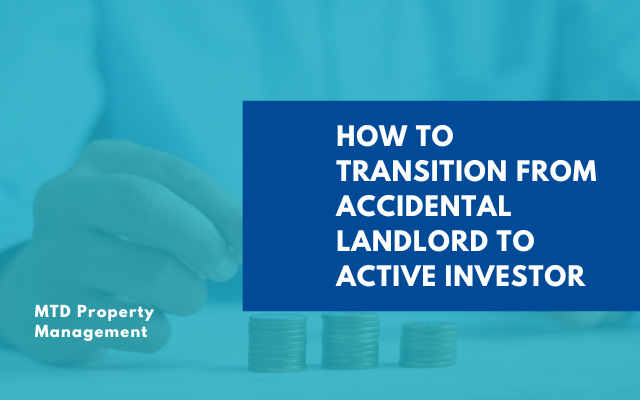
Key Takeaways:
- Mindset Matters: From Landlord to Investor: The biggest step in moving from an accidental landlord to an active investor is shifting perspective—treating your rental property as a business with measurable goals, systems, and strategies for long-term growth.
- Smart Management Maximizes Returns: Strategic rent pricing, thorough tenant screening, and proactive maintenance help reduce vacancies, prevent costly repairs, and boost profitability—turning a passive rental into a reliable income stream.
- Professional Guidance Accelerates Success:
Partnering with a property management company like MTD Property Management ensures compliance with housing laws, optimized rent collection, and expert financial oversight, allowing landlords to focus on scaling their investments confidently.
It happens more often than people think. Someone inherits a family home, or they move for work and decide not to sell their house. Sometimes, a slow market forces the decision. Either way, a person who never set out to become a landlord suddenly finds themselves with tenants, rent checks, and plenty of questions.
That is the life of an accidental landlord. Initially, the objective is simply to pay off the mortgage. Then, after some time, you begin asking yourself: Could this property do more for me?
The answer is yes.
MTD Property Management is here to help you make the transition from an accidental landlord to an active investor.
Understanding Where You Stand
Accidental landlords usually begin in survival mode. You want to make sure the rent shows up on time, that the roof does not leak, and that the tenants do not call every week with problems.
However, it is only up to a point that one can use a rental as an afterthought. Lacking a plan, you are likely to leave money on the table - or even worse, cause stress that will haunt you every month. The active investors treat their rentals in a different manner. They view property as a business, which can be measured, improved, and scaled.
Shifting Your Mindset
Think of the difference this way: a landlord reacts, an investor prepares.

The landlord is fixing the furnace at 2 a.m. The investor already scheduled yearly maintenance and set aside funds for repairs. The landlord hopes the rent covers the bills. The investor runs the numbers and knows their cash flow, return on investment, and equity growth.
This shift does not happen overnight. Start small by setting a clear financial goal for your rental, putting systems in place for rent collection and maintenance, and learning a little more each month about real estate strategy.
According to the National Association of Realtors, professional management and clear financial goals are key to treating property as a serious investment.
The more you treat your property like an investment, the more opportunities for growth you will see.
Rethink Your Rent Strategy
Accidental landlords often charge whatever “feels fair.” Sometimes it is too low, and they lose income, while other times, it is too high and the place sits empty. Neither works if you are serious about returns.
The smarter move is to compare your property to others in your neighborhood. Look at size, condition, and amenities. Online data can help, but a professional rental analysis goes further, factoring in trends and local demand.
Filling Units with the Right Tenants
Here is where many accidental landlords stumble. It is tempting to accept the first person who applies, just to fill the space. But the wrong tenant costs far more than a few weeks of vacancy.

Good tenants pay on time, respect the property, and stay longer. Bad ones can mean unpaid rent, damage, and legal battles. Thorough screening with background checks, income verification, and rental history save landlords from headaches.
Retention Is the Real Secret
Getting tenants in the door is only half the job. Keeping them is what really protects your
rental income. Every time a tenant moves out, you are left paying for advertising, repairs, cleaning, and lost rent.
The easiest way to retain tenants and create a positive landlord-tenant relationship? Maintenance. Tenants feel appreciated when they observe speedy repairs. Preventive maintenance prevents larger emergencies in the future as well. One little repair today keeps you out of a big bill tomorrow.
Smart Upgrades That Attract Renters
You do not have to remodel to increase rent. In many cases, minor improvements can be the most effective. New flooring, modern lighting, or even a fresh coat of paint can put a property in a better light.
Smart thermostats and energy-efficient appliances are in demand as well. Tenants save on the utilities, while landlords enjoy the advantages of charging a little more rent. Consider upgrades as specific investments and not costs.
Using the Numbers to Grow
Monitor cash flow, costs, and vacancy rates. Determine your ROI. When you are aware of your figures, then you are able to make wise decisions. Should you raise rent? Refinance? Use equity to buy another property? That data guides your next step, and it is how one rental becomes two, then three.
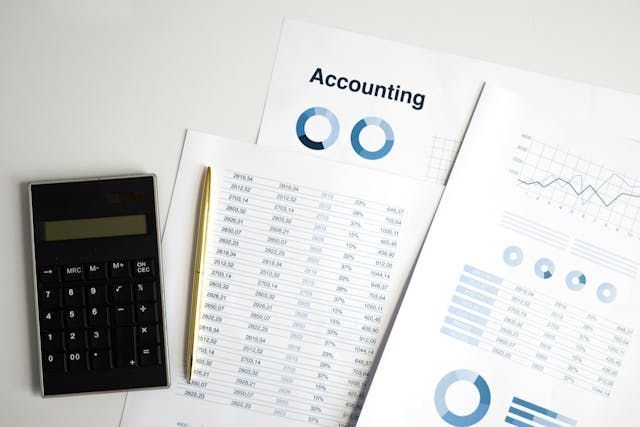
Taxes and Legal Protections
Two areas often overlooked by accidental landlords are taxes and laws. Both can work in your favor—or against you.
The IRS allows deductions for mortgage interest, property taxes, repairs, and even depreciation. These write-offs can make a rental more profitable than it looks on paper. The IRS rental income guide explains the details, but working with an accountant ensures you do not miss opportunities.
On the legal side, compliance is critical. The Fair Housing Act protects tenants from discrimination based on race, religion, disability, family status, and more. Violations lead to steep fines.
Ignoring these laws can quickly erase your profits, so understanding them—or hiring experts who do—is essential.
From Accidental to Intentional
It might not have been the intention to become a landlord, but it can be the beginning of something greater. It takes a change of attitude, finding the correct rent, retaining good tenants, and listening to the numbers and the laws to become a proactive investor rather than a reactive landlord.
When the daily routine tasks seem to get overwhelming, you do not have to handle them all on your own. At MTD Property Management, our team does all the
tenant screening, property maintenance, legal compliance, and more, so you can grow and not worry.

Taxes and Legal Protections
Two areas often overlooked by accidental landlords are taxes and laws. Both can work in your favor—or against you.
The IRS allows deductions for mortgage interest, property taxes, repairs, and even depreciation. These write-offs can make a rental more profitable than it looks on paper. The IRS rental income guide explains the details, but working with an accountant ensures you do not miss opportunities.
On the legal side, compliance is critical. The Fair Housing Act protects tenants from discrimination based on race, religion, disability, family status, and more. Violations lead to steep fines.
Ignoring these laws can quickly erase your profits, so understanding them—or hiring experts who do—is essential.
From Accidental to Intentional
It might not have been the intention to become a landlord, but it can be the beginning of something greater. It takes a change of attitude, finding the correct rent, retaining good tenants, and listening to the numbers and the laws to become a proactive investor rather than a reactive landlord.
When the daily routine tasks seem to get overwhelming, you do not have to handle them all on your own. At MTD Property Management, our team does all the
tenant screening, property maintenance, legal compliance, and more, so you can grow and not worry.

